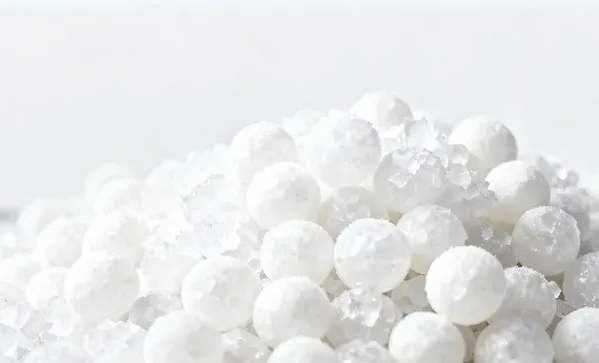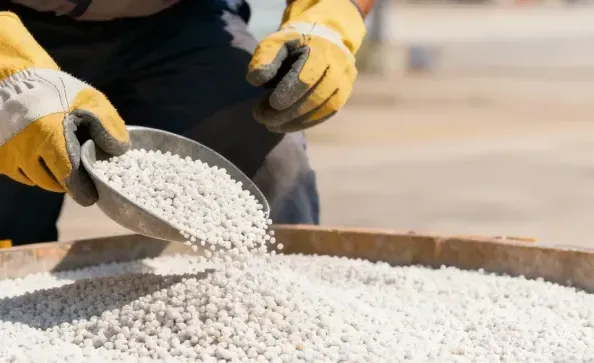一级标题
一级标题
Avoid your inquiry is delay response, please enter your WhatsApp/Skype along with the message, so we can contact you at the very first time.
We will reply you within 24 hours. If for urgent case, please add WhatsApp/WeChat:
Warning: Undefined variable $public in /www/wwwroot/lvfertilizer.com/wp-content/themes/hyhadmin/header.php on line 350
Warning: Trying to access array offset on value of type null in /www/wwwroot/lvfertilizer.com/wp-content/themes/hyhadmin/header.php on line 350
,. Or call
Warning: Undefined variable $public in /www/wwwroot/lvfertilizer.com/wp-content/themes/hyhadmin/header.php on line 350
Warning: Trying to access array offset on value of type null in /www/wwwroot/lvfertilizer.com/wp-content/themes/hyhadmin/header.php on line 350
directly.
You have a problem.
Your crops are not growing as they should. The leaves are a pale, sickly yellow. Your harvest is small. For all your hard work, your farm profitability is low. This is a huge problem for anyone who grows plants, from big farms to small gardens.
This problem has a name: nutrient deficiency.
It is a deeply frustrating issue. You give your plants water and sunshine. You protect them from pests. But they still look weak. You worry about your crop yield enhancement and the post-harvest quality of your fruits and vegetables. It feels like you are losing a battle against an invisible enemy. What if the enemy is your soil itself?
The issue might be a poor macronutrient balance or a difficult soil pH. Your soil might be locking away the very food your plants need to survive. This is not just a small problem; it’s a crisis that affects everything from plant vigor to your final income. It puts your entire operation at risk.
But there is a simple, scientific solution.
It is a special kind of plant food called Ammonium Sulphate Fertilizer. This is not just another bag of chemicals. It is a precise tool designed to solve these exact problems. This guide will walk you through the science of how it works. We will explore how this one powerful product can lead to healthier plants and a bigger, better harvest.
Plants are like people. They need a balanced diet. Two of the most important foods they need are Nitrogen (N) and Sulfur (S). Nitrogen is famous. It is the key to green leaves and fast growth. But sulfur is the forgotten hero. Without enough sulfur, plants cannot build important enzymes or proteins. A sulfur deficiency can stop a plant in its tracks.
You might be using a high nitrogen fertilizer, but are you seeing the results you expect? If your plants are also missing sulfur, they cannot use the nitrogen you give them. It is like trying to build a house with only wood but no nails. The nitrogen is there, but the plant can’t use it to build what it needs. This means you are wasting money and effort. The plant’s plant metabolism slows down. Its photosynthesis efficiency drops. The result is weak growth and a disappointing harvest. You are paying for fertilizer that is not working.
Ammonium sulphate is a smart, efficient solution. Its chemical formula is (NH₄)₂SO₄. This formula tells us it delivers both nitrogen (21%) and sulfur (24%) in one tiny granule.

Ammonium sulphate
This is a perfect partnership.
When a plant gets both at the same time, it can finally use the nitrogen effectively. This leads to strong protein formation and immediate crop yield enhancement. It’s not just a snack for your plants; it’s a complete, balanced meal. This makes it different from many basic NPK blends which may lack sufficient sulfur. For truly balanced nutrition, exploring various types of fertilizer compounds is wise, but the N and S synergy in ammonium sulphate is unique.
Do you struggle with alkaline soils? This is a common problem where the soil pH is too high. In these conditions, essential micronutrients like iron and zinc become trapped. They are in the soil, but they are chemically locked up. Plants cannot absorb them. This is a widespread issue known as nutrient lockup.
This is a nightmare for a grower. You perform a soil testing and see that nutrients are present. You might even add more. But your plants are still starving. You see the classic signs of deficiency: yellow leaves, stunted root development, and poor fruit quality. This problem directly hurts iron availability, manganese uptake, zinc accessibility, and copper absorption. Your expensive efforts at alkaline soil remediation seem to be a total failure.
Ammonium sulphate performs a little bit of magic in the soil. It creates soil acidification. When the fertilizer dissolves, the ammonium is used by soil microbes and plants. This process releases a small amount of acid.
This gentle change in soil pH is the key.
It unlocks the trapped nutrients, making them available for your plants to eat. It is a crucial tool for any good nutrient management plan. By fixing the soil environment, it ensures that both the fertilizer you add and the nutrients already present can be used. This makes it an essential soil amendment for anyone farming on high-pH land, from large-scale rainfed agriculture to small backyard gardens. This approach is far more effective than just adding more nutrients to already locked soil.
When you spend money on fertilizer, you want it to feed your plants. But two major problems often get in the way: nutrient leaching and volatilization reduction. Leaching is when rain or irrigation washes fertilizer deep into the soil, away from plant roots. Volatilization is when fertilizer, especially nitrogen, turns into a gas and simply disappears into the air.
This is like setting a pile of money on fire. The fertilizer you paid for ends up polluting groundwater contamination or the atmosphere. It does nothing for your crops. In a direct urea comparison, urea is famous for losing a large portion of its nitrogen to volatilization. This has a huge environmental impact and directly hurts your wallet. It is an inefficient, wasteful way to feed plants. This can lead to environmental problems like eutrophication and algal blooms in waterways.
Ammonium sulphate provides a much more stable form of nitrogen. The nitrogen is in the ammonium ((NH₄)⁺) form. This form carries a positive charge, which makes it stick to negatively charged soil particles.
Think of it like a magnet.
Because it sticks to the soil, it resists being washed away by water. This means:
This makes it a cornerstone of sustainable agriculture and the 4R Nutrient Stewardship framework (Right Source, Right Rate, Right Time, Right Place). You get more value for your money, and the environment is better protected. Major organizations like the USDA and FAO promote these efficient practices.
Understanding the benefits is the first step. Now, let’s talk about how to use it correctly. Proper application is key to getting the best results.
The best method depends on your crops and system.
Always start with soil testing. A simple test from a soil testing kits will tell you your pH and nutrient levels. This prevents you from wasting money or harming your soil.
| Crop Category | Typical Application Rate | Notes |
| Cereal Crops (Corn, Wheat) | 100-150 kg/ha | Apply early for vigorous growth and protein content. |
| Oilseed & Brassicas | 200-300 kg/ha | These crops crave sulfur for oilseed quality. |
| Vegetables & Leafy Greens | 100-200 kg/ha | Supports fast growth and deep green color. |
| Turf Management | 50-100 kg/ha | Promotes a lush, green lawn without excessive growth. |
Ammonium sulphate is safe when used correctly. However, always follow safety handling guidelines.
For those looking for a reliable source, it’s important to find a trusted ammonium sulfate supplier who understands quality and purity.

Safety and Handling
Choosing the right fertilizer is not just about crop-specific nutrition; it is also about protecting our planet. The stability of ammonium sulphate offers major environmental benefits.
Pros:
Cons and How to Manage Them:
By using this fertilizer responsibly, we can improve farm profitability while meeting the goals of sustainable agriculture. It is a tool that fits within modern fertilizer regulations set by bodies like the EPA regulations and contributes to achieving global Sustainable Development Goals (SDGs). Many large fertilizer companies, such as Yara International, Nutrien, and Mosaic Company, are key players in promoting these sustainable practices.
Let’s go back to the problem. The sick, yellow plants. The small harvest. The lost profits.
You were fighting a hidden battle against poor soil health, nutrient lockup, and fertilizer waste. The frustration was real. It cost you time, money, and peace of mind.
We have shown you the scientific solution. Ammonium Sulphate Fertilizer is more than just plant food.
It helps with everything from flowering enhancement and fruit set to ensuring good storage longevity of your harvest. It is a cost-effective, versatile tool for modern growers who demand results. While a general-purpose NPK 20-20-20 fertilizer has its place, the specific benefits of ammonium sulphate for tackling sulfur deficiency and high pH are unmatched.
Do not let poor soil dictate your success. Take control.
Test your soil pH and nutrient levels. See if the dual-action power of ammonium sulphate is the right solution for you. Explore our range of high-quality ammonium sulphate fertilizer products and take the first step toward a healthier, more profitable harvest today